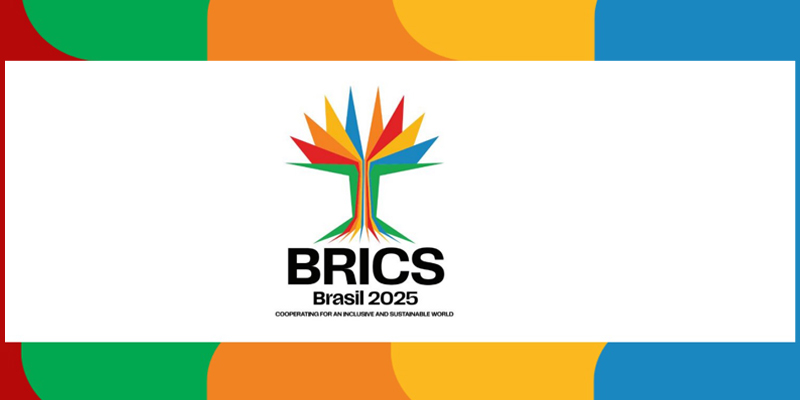- India
- May 24
- Sreesha V.M
India calls for end to export controls among BRICS nations
• The 15th BRICS Trade Ministers’ Meeting was held on May 21 in Brasilia under the theme ‘Strengthening Global South Cooperation for More Inclusive and Sustainable Governance’.
• India used the platform to oppose export controls among BRICS members, encouraging mutual support within the bloc.
• As India prepares to assume the BRICS presidency in 2026, it commended the solution-oriented approach of the Brazilian presidency in addressing critical trade issues.
A key outcome of the meeting was the endorsement of the Joint Declaration along with three annexures:
i) BRICS Declaration on WTO Reform and Strengthening of Multilateral Trading System,
ii) BRICS Data Economy Governance Understanding.
iii) BRICS Trade and Sustainable Development Framework.
• These documents collectively reaffirm BRICS’ commitment to equitable, inclusive, and rules-based global trade.
• The Declaration especially emphasised that climate-related trade measures should not serve as tools of unjustifiable discrimination or disguised trade restrictions.
• On the subject of WTO reform, India highlighted the need for resolving long-standing developmental issues, particularly calling for a Permanent Solution to Public Stockholding (PSH) for food security.
• The Indian proposal of “30 for 30”, which seeks to introduce 30 incremental improvements to mark WTO’s 30th anniversary in 2025, was also emphasised.
• India reiterated that sustainable development is deeply rooted in its cultural ethos and must remain a cornerstone of international trade governance.
• India urged developed nations to ensure the concessional transfer of Environmentally Sound Technologies (ESTs), supported by adequate financial resources.
• The country also reiterated its commitment to global cooperation in Digital Public Infrastructure, artificial intelligence, and cybersecurity under forums such as the Global Partnership on AI and G20.
The BRICS nations
• The BRICS nations or Brazil, Russia, India, China and South Africa form the key pillars of south-south cooperation and are the representative voice of emerging markets and developing countries in the global forums such as the G20.
• The grouping has become a 11-nation body now with Egypt, Ethiopia, Iran, Saudi Arabia, the United Arab Emirates and Indonesia joining it as new members.
• The acronym BRIC was first used in 2001 by Goldman Sachs in their Global Economics Paper, ‘The World Needs Better Economic BRICs’ on the basis of econometric analyses projecting that the four economies would individually and collectively occupy far greater economic space and would be amongst the world’s largest economies in the next 50 years or so.
• The leaders of BRIC (Brazil, Russia, India, and China) countries met for the first time in St. Petersburg, Russia, on the margins of the G8 Outreach Summit in July 2006. Shortly afterwards, in September 2006, the group was formalised as BRIC during the First BRIC Foreign Ministers’ Meeting, which met on the sidelines of the General Debate of the UN Assembly in New York City.
• After a series of high level meetings, the first BRIC summit was held in Yekaterinburg, Russia on June 16, 2009.
• It was agreed to expand BRIC into BRICS with the inclusion of South Africa at the BRIC Foreign Ministers meeting in New York in September 2010. Accordingly, South Africa attended the third BRICS Summit in Sanya on April 14, 2011.
• In 2014, the BRICS nations established the New Development Bank (NDB). It has an initial authorised capital of $100 billion and initial subscribed capital of $50 billion of which $10 billion is paid-in capital.
Expansion of BRICS
• BRICS leaders have left the door open to future enlargement as dozens more countries voiced interest in joining a grouping.
• Around 40 countries had shown interest in joining BRICS out of which 23 formally applied for the membership.
• In August 2023, the top BRICS leaders at the grouping’s summit in Johannesburg approved a proposal to admit six countries, including Argentina, into the bloc with effect from January 1, 2024. However, Argentina’s President Javier Milei announced withdrawing his country from becoming a member of the BRICS.
• The decision to expand the bloc is seen as an effort to reshape global governance while putting the voices of the Global South as a key priority area to advance the overall development agenda.
• Brazil assumed the presidency of BRICS on January 1, 2025.
(The author is a trainer for Civil Services aspirants.)

